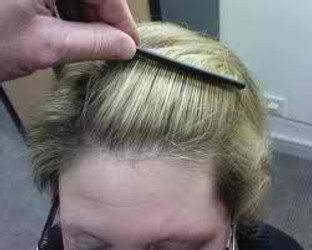FREQUENT CAUSES OF HAIR LOSS IN WOMEN
Posted by Manny Y on 7th Apr 2015
Thinning hair or hair loss can cause overwhelming confidence issues for both men and women at any age. But probably the impact is more damaging for women compared to men. Usually, men learn how to accept their being bald or having an exceedingly exceeding hair line since most men end up this way. In women, it’s a different story. A woman’s hair is a part of their psyche, it’s a major part that makes them so attractive, they don’t call it their crowning glory for nothing.
What causes hair loss in women?

The truth is, there are a lot of factors and events in a woman’s life that can cause hair loss, a lot more than men actually. Below common events that can cause hair loss in women:
Hormones: Changes in hormonal levels may encourage hair growth or cause sudden hair fall. A good example of this is post partum hair loss. While pregnant, estrogen levels increases and is constantly produced. This hormone is excellent for hair growth, it’s like hair fertilizer. But after giving birth, estrogen levels drops, causing sudden and massive hair loss.
Another hormone is Dihydrotestosterone, this is the number 1 cause of hair loss in men and women. It’s actually a male hormone! But women produce small quantities of dihydrotestosterone, enough to cause hair to fall out.
Insufficient nutrients: Dieting or learning to control what you eat is very important for healthy living, but there are a few individuals to take dieting to the extreme and literally starve themselves. Our hair producing cells found below the hair follicles rapidly multiply. In fact, they are one the fastest growing cells in the body. And these cells are nutrient hungry, they need a lot of nutrients, especially protein to generate about half an inch a month.
Anemia. Anemia is a very frequent condition in women due to monthly menstrual cycles. Unfortunately, anemia can decrease oxygen levels in the body. Again, hair producing cells need oxygen to produce hair.
Except for androgenetic alopecia, all of the conditions above are non permanent or self limiting and a hair loss treatment is really not needed. Simply by correcting the underlying condition like for example correcting anemia, hair will eventually grow back.

